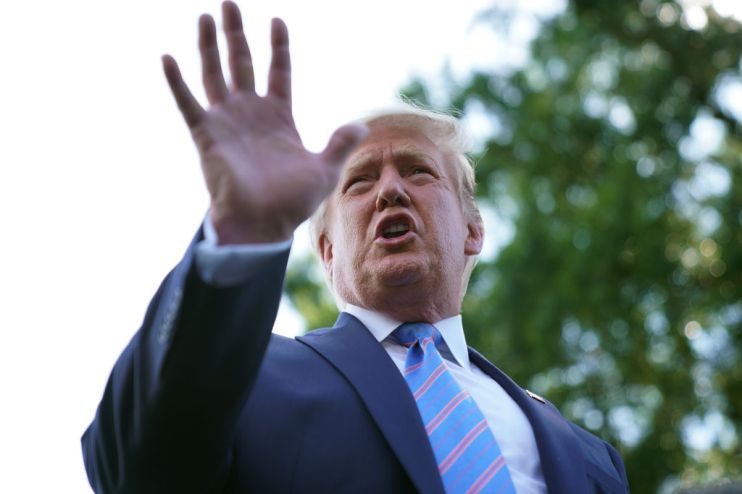Donald Trump accuses Beijing of currency manipulation

US President Donald Trump has accused China of currency manipulation and said the Federal Reserve should act to lower the value of the dollar.
Read more: Markets in turmoil as Chinese currency falls to financial crisis levels
Trump tweeted: “China dropped the price of their currency to an almost a historic low. It’s called “currency manipulation.” Are you listening Federal Reserve? This is a major violation which will greatly weaken China over time!”
China’s currency, the renminbi, has fallen 1.4 per cent against the dollar today, meaning one dollar buys 7.039 yuan. This marks its lowest level since the financial crisis.
The mood among traders has darkened since Trump slapped 10 per cent tariffs on $300bn of Chinese imports last week, dramatically escalating the long-running trade war with the world’s second-largest economy.
The Chinese government has long controlled the value of the country’s currency. It has drawn criticism from some in the international community who say Chinese goods are made artificially competitive.
Julian Evans-Pritchard, senior China economist at Capital Economics, said: “The People’s Bank of China has allowed the renminbi to fall to its weakest level in a decade in response to trade tensions.”
“It appears to have decided that, given the increasingly dim prospects of a trade deal with the US, the boost to China’s export sector from currency depreciation is worth attracting the ire of the Trump.”
The Trump administration is thought to be considering devaluing the dollar to make US goods more competitive, providing manufacturers with the boost the President has promised.
At the end of last month, Trump said: “I didn’t say I’m not going to do something.”
The President has repeatedly called for the Fed to significantly cut interest rates, and reacted angrily when the central bank carried out a small 0.25 percentage point cut last week.
A lower interest rate decreases the value of the dollar as it discourages investment in dollar-denominated assets.
He tweeted last week: “As usual, [Fed chair Jay] Powell let us down, but at least he is ending quantitative tightening, which shouldn’t have started in the first place – no inflation.”
“We are winning anyway, but I am certainly not getting much help from the Federal Reserve!”
Evans-Pritchard said of China: “Given that their goal is presumably to offset some of the impact from additional US tariffs, they are likely to allow the currency to weaken further, probably by five to 10 per cent over the coming quarters.”
Read more: FTSE 100 tumbles as trade war heats up and Brexit approaches
“We now expect the renminbi to end 2019 at 7.30 per US dollar (compared with 6.90 previously).”